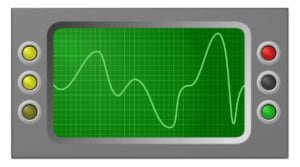- Key Notes on Revised Schedule M: Plant and equipment - August 16, 2025
- Drug Imports: New Online System for Dual Use NOC launched - August 2, 2025
- Amendment: Know About the Cosmetics (Amendment) Rules, 2025 - July 31, 2025
Last Updated on August 12, 2023 by The Health Master
Quality Assurance
Quality Assurance, the backbone of the pharmaceutical industry. Without it, we might as well be taking our chances with some suspicious-looking supplements from the back of a truck.
But what exactly is Quality Assurance?
Simply put, it’s the process of maintaining a consistent level of quality in every aspect of pharmaceutical production.
From raw materials to finished products, everything must meet strict standards. The importance of Quality Assurance cannot be overstated.
After all, these are products we’re ingesting and putting into our bodies.
We want to be sure that they’re not harmful or ineffective. Quality Assurance ensures that pharmaceutical companies meet regulations set by governing bodies like the FDA and that products are manufactured to the highest possible standard.
Of course, with such a vital role, there are plenty of regulatory requirements in place.
Companies must be meticulous in documenting everything related to production and be prepared to produce records for inspection at any time.
But the payoff is worth it. With a strong Quality Assurance program, pharmaceutical companies can ensure the safety and efficacy of their products and maintain the trust of consumers everywhere.
Also read: Duties and responsibilities of QA person in Pharma Industry
Quality Control vs Quality Assurance
Quality control (QC) involves inspecting and testing the product to ensure it meets predetermined quality standards.
Quality Assurance (QA), on the other hand, aims to prevent defects by maintaining a consistent process of quality checks throughout the product’s life cycle.
While both are crucial, QC is reactive, while QA is proactive and preventive.
Simply put, QC finds defects after they occur, whereas QA takes steps to prevent them from happening in the first place.
Implementing Quality Assurance
Implementing Quality Assurance is vital for ensuring that pharmaceutical products are of the highest quality. Designing and implementing quality systems is the first step towards achieving this goal.
Quality systems are essentially management systems that ensure that procedures are in place to make sure the product meets its quality standards.
Documentation is also critical for implementing quality assurance.
All processes must be documented, and these documents must be available for audit purposes. This will ensure that the process is run efficiently and with minimal errors.
Training and qualification of personnel are integral parts of quality assurance. Staff must be trained and qualified for their roles and responsibilities.
They must have adequate knowledge, skills, and a clear understanding of the procedures and processes required to meet the quality standards.
Risk management is also essential for achieving and maintaining quality in pharmaceutical products.
Risks must be identified, assessed, and managed to ensure that they do not jeopardize product quality or safety.
Implementation of quality assurance processes and procedures will ensure that products meet the highest possible standards.
Role of Quality Assurance in Drug Development
Quality assurance plays an essential role in every stage of drug development. During product design and development, quality assurance ensures the product’s safety and efficacy.
Analytical method development and validation are crucial in determining product quality and stability.
Manufacturing and packaging quality are crucial for product safety, efficacy, and regulatory compliance.
Quality assurance during product release and stability testing ensures that the product consistently meets quality standards.
Quality assurance personnel are involved in every step to ensure that regulatory requirements are met while producing safe and effective drugs.
The eventual goal of quality assurance is to ensure that patients receive the best quality products.
Challenges in Quality Assurance
Ensuring compliance is a major challenge for quality assurance in the pharmaceutical industry.
With strict regulatory requirements, ensuring that every process, document, and product meets the necessary standards can be an overwhelming task.
Balancing the cost of quality assurance with effective measures is also a challenge that pharmaceutical companies face.
Proper risk management and maintaining quality during outsourcing are other significant challenges in this industry.
But with a personalized approach to tackling these challenges and the integration of technology, the future of quality assurance in the pharmaceutical industry looks promising.
Future of Quality Assurance in the Pharma Industry
The future of Quality Assurance (QA) in the pharmaceutical industry is heavily influenced by technology.
Advancements in automation, machine learning, and artificial intelligence have made it easier to monitor processes and detect defects in real-time.
Additionally, there’s an increased focus on patient-centricity, which means QA must meet patient expectations and needs.
The changing regulatory landscape is forcing companies to invest more in QA while emerging markets present new challenges.
Despite these challenges, QA remains critical to ensuring that pharmaceutical products meet required safety and efficacy standards.
Key Notes on Revised Schedule M: Compilation
Important short notes for Industry and Regulators
CDSCO Guidelines on Drug Recall
Quality Assurance Vs Quality Control in the Pharma Industry
Major FDA audit findings about Equipment and Instruments
Understanding GMP, cGMP, and WHO-GMP
Quality Assurance in the Pharmaceutical Industry
Duties and responsibilities of QA person in Pharma Industry
Difference: Disintegration and Dissolution test in pharma industry
Understanding DQ, IQ, PQ, and OQ in the Pharma Industry
Conclusion
Pharmaceutical quality assurance is critical in ensuring that drugs are safe, effective, and consistently manufactured.
Effective quality assurance is essential for maintaining regulatory compliance, managing risk, and meeting business objectives.
Looking forward, the pharmaceutical industry will see an increased focus on patient-centricity, changing regulatory landscapes, and emerging technologies.
Quality assurance professionals must keep an eye on these developments to ensure that they adapt to the ever-changing landscape.
By investing in innovative technologies and continuing to put patients first, the future of pharmaceutical quality assurance is bright.
Compiled by:
Rakesh Dahiya, ASDC, FDA Haryana
Guidelines for Export NOC revised
Apply WHO-GMP & CoPPs online: Step by step procedure
CDSCO Guidelines: Safe Disposal of Expired and Unused Drugs
Drugs and Cosmetics (Compounding of Offences) Rules, 2025: Gist
Qualification and Experience: For Technical Staff in Medical Devices
Key Notes on Revised Schedule M: Must read
Key Changes for Homoeopathic Medicines: GSR 669(E) dated 28-10-2024
Significance of Granules Manufacturing in the Pharmaceutical Industry
Gist of the draft notification: Compounding of Offences under the Drugs and Cosmetics Act
Laboratory Waste Management, Types and Its Disposal
How to Become a Skilled Manufacturing Chemist in the Pharma Industry
Sweet Science: Exploring Importance of Inverted Sugar in Pharma Industry
NABL certification for Laboratories: Let’s understand
Major FDA audit findings about Equipment and Instruments
Equipment and Instruments: Maintenance, difference and importance in the Pharma Industry
Quality Assurance in the Pharmaceutical Industry
NIPER: A Comprehensive Guide to NIPER Institutes in India
Latest on Indian Pharmacopoeia Commission (IPC)
Types of inspections done by USFDA: Read in detail
AHUs, Air Types, Air Changes and their Functions in Pharma Industry
Understanding Airlock Systems in Pharma Industry
Upcoming events: Pharma, Cosmetics, Homoeopathy & Medical Devices
Guidance documents for industry
Cosmetics Testing in India: A Comprehensive Guide
Airlocks in the Pharma Industry: An essential component
Line clearance and maintenance in manufacturing: A comprehensive guide
Difference between Validation and Calibration in the Pharma Industry
The Effectiveness of 70% Alcohol as a Disinfectant
Wet Granulation vs Dry Granulation: Understanding the Key Differences
Understanding GMP, cGMP, and WHO-GMP
USFDA issues Form 483 to Pharma Companies: Let’s know all about it
Calibration of Laboratory Instruments
Difference: Disintegration and Dissolution test in pharma industry
How to prepare SOPs in the Pharma Industry
Difference between branded and generic medicines
Understanding DQ, IQ, PQ, and OQ in the Pharma Industry
Duties and responsibilities of QA person in Pharma Industry
Types of Tablet Coating and its Functionality in pharma industry
Dissolution test: Importance in Pharma Industry
Lux level in Industry (Pharma, Cosmetics, Homeopathy & Medical Devices)
NSQ Drug: Route cause analysis and CAPA
Area required for manufacturing of Drugs, Cosmetics, Homoeopathic & Blood Centre












